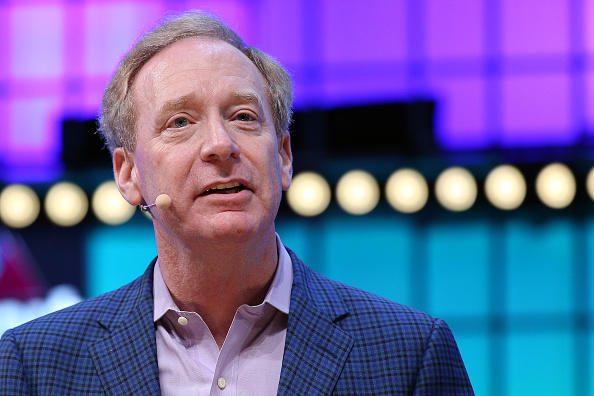Since the Christchurch shooting, tech companies have scrambled to keep video of it offline — and they haven’t really succeeded. On Sunday, Microsoft’s president Brad Smith published a blog post addressing tech and its role in tragedies like this.
Many companies have said that they simply weren’t prepared for an event like Christchurch. The video originally streamed on Facebook Live and later, the company said its artificial intelligence couldn’t detect the video to stop its spread. However, in his blog post, Smith argued that tech companies should have been prepared in advance.
“Ultimately, we need to develop an industrywide approach that will be principled, comprehensive and effective,” Smith wrote. “The best way to pursue this is to take new and concrete steps quickly in ways that build upon what already exists.”
Smith noted that “individuals are using online platforms to bring out the darkest sides of humanity,” as demonstrated by Christchurch. The attack was designed to go viral and it succeeded.
Facebook blocked 1.2 million videos at upload, but 300,000 still made their way through. YouTube didn’t specify a number but said it faced an “unprecedented volume” of videos, according to the Washington Post.
Smith pointed out that over two years ago, YouTube, Facebook, Twitter, and Microsoft all came together to create the Global Internet Forum to Counter Terrorism (GIFCT). If the companies were capable of working together for that, Smith argued they could design an “industrywide approach” for dealing with incidents like the one that happened in New Zealand.
“Competition is obviously indispensable to a vibrant technology sector,” Smith wrote. “But when it comes to saving human lives and protecting human rights, we should act in a united way and enable every company large and small to move faster.”
Ideally Smith’s suggestion of a “major event” across the industry would allow companies to work together and coordinate responses. He also encouraged a focus on prevention to “stop perpetrators from posting and sharing acts of violence against innocent people.”
Smith’s blog post partially removes the go-to excuse for companies right now, which is that they weren’t prepared. The fact is that they could have implemented something beforehand because warning signs were all over.
Platforms on which the video spread — like Facebook and Twitter — have long struggled with hate. In 2018, TechCrunch even referred to Twitter as a “Nazi haven.”
Most of these companies have played a role in spreading Islamophobic rhetoric, but refuse to be held accountable.
“The question is not just what technology did to exacerbate this problem, but what technology and tech companies can do to help solve it,” Smith said. “Put in these terms, there is room — and a need — for everyone to help.”

